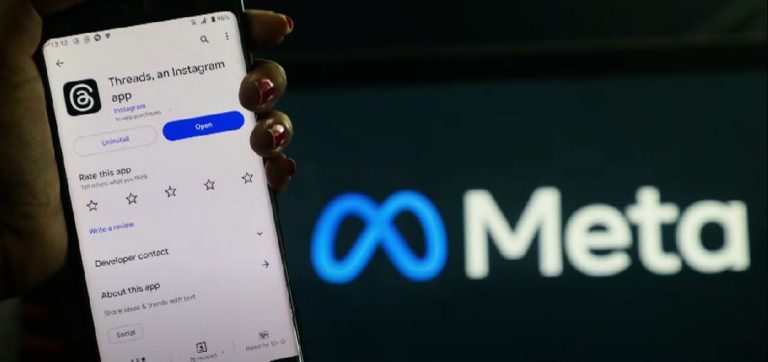Meta, the tech giant behind Facebook, Instagram, and Threads, announced a seismic shift in its content moderation policies on Tuesday.
The company will discontinue its third-party fact-checking program, introduced in 2016 to combat misinformation, in favor of a system relying on user-generated notes to flag potentially false or misleading posts.
The new approach is modeled after Elon Musk’s Community Notes feature on X, which reflects Meta’s pivot toward fostering greater free expression.
The social media giant said it would “allow more speech by lifting restrictions on some topics that are part of mainstream discourse and focusing our enforcement on illegal and high-severity violations” and “take a more personalized approach to political content”.
Meta CEO Mark Zuckerberg in a video announcement,
It’s time to get back to our roots around free expression.
Zuckerberg acknowledged that the current system had become overly complex, leading to “too many mistakes and too much censorship.”
What do the changes entail?
Zuckerberg added that Meta would also change its systems to “dramatically reduce” the amount of content that its automated filters remove from its platforms.
That includes lifting restrictions on topics such as immigration and gender, to focus its systems on “illegal and high-severity violations”, such as terrorism, child exploitation, and fraud, as well as content related to suicide, self-injury and eating disorders.
Though he conceded that the shift could result in an uptick in harmful content on the platform, he said it will help the cause of those whose posts and accounts were accidentally taken down.
“The reality is that this is a trade-off,” he explained.
We’re going to catch less bad stuff, but we’ll also reduce the number of innocent people’s posts and accounts that we accidentally take down.
The rollout of this system is expected to begin in the United States within the next few months, with plans for broader implementation if successful.
Meta’s shares were down by 1.47% at 1:54 pm.
Joel Kaplan, and Trump ally Dana White at Meta
Meta’s decision appears to align with the incoming Trump administration and shows a recalibration of the company’s policies to suit the political landscape.
The announcement came just a day after UFC founder and Trump ally Dana White was appointed to Meta’s board of directors.
White joins Marc Andreessen, a tech investor and staunch advocate for reduced content moderation, in shaping Meta’s governance strategy.
The timing of these announcements, coupled with the policy reversal, shows how arduously Meta is trying to reposition itself as a proponent of free speech under the Trump presidency.
Joel Kaplan, Meta’s newly appointed global policy chief, who has played a significant role in Tuesday’s announcement, described the shift as a necessary reset.
“This is a great opportunity for us to reset the balance in favor of free expression,” Kaplan said in an interview on Fox and Friends.
Kaplan said the company’s previous fact-checking system became too “biased” and the company wanted to return to its roots of more unfettered speech.
He pointed to Elon Musk’s X, which has few rules and allows users to moderate each other, as a good model, adding,
I think Elon’s played an incredibly important role in moving the debate and getting people refocused on free expression.
Content moderation staff to relocate to Texas
As part of the overhaul, Meta plans to move its US-based content moderation teams from California to Texas.
Zuckerberg stated that the relocation aims to rebuild trust and address concerns over bias within the moderation process.
Texas, known for its conservative values, is seen as a strategic choice.
However, critics argue that the move could polarize public opinion further by aligning Meta’s operations more closely with conservative ideologies.
Safety advocates raise alarms over increased risks
The changes have sparked a backlash from safety advocates who warn of potentially dire consequences, especially for vulnerable users.
Ian Russell, a prominent campaigner for online safety whose daughter Molly took her life after viewing harmful content on Instagram, expressed his dismay.
These moves could have dire consequences for many children and young adults.
Meta’s decision to abandon partnerships with news organizations and third-party fact-checkers has also raised concerns among digital safety experts.
Many fear that misinformation will spread more rapidly without the rigorous checks previously in place.
Criticism has also come from governments and media organizations worldwide.
Zuckerberg aimed European laws, which he claimed are “institutionalizing censorship,” as well as restrictive regimes in China and Latin America.
He framed the decision as part of a broader effort to push back against global regulations that hinder innovation and free expression.
Meta’s policy echoes Elon Musk’s X
The overhaul mirrors Elon Musk’s strategy with X, formerly Twitter, where user-generated moderation through Community Notes has become a cornerstone of the platform’s approach to misinformation.
Musk, a major Trump donor, has increasingly positioned X as a platform for unfettered free speech, often sparking controversy.
Zuckerberg’s decision to emulate this model signals a broader trend among tech giants to shift away from centralized moderation in favour of community-driven systems.
While this may reduce operational complexities, critics warn that it places too much responsibility on users to police misinformation.
On a broader level, since Trump’s victory in November, some major corporations have been seen aligning overtly with the president-elect.
During the presidential transition, Meta has made a series of announcements reflecting what CEO Mark Zuckerberg described as a “cultural tipping point” brought about by the election.
Trump was asked about Meta’s announcement at an unrelated news conference he was hosting at Mar-a-Lago.
Trump said he watched Joel Kaplan’s interview on Fox and found it “impressive,” adding that the company had “come a long way.”
A beat later, though, Trump conceded that the change was “probably” due to threats that he has made against the company and its leader, Mark Zuckerberg.
The post Meta ends fact-checking efforts as it aligns with incoming Trump administration appeared first on Invezz

